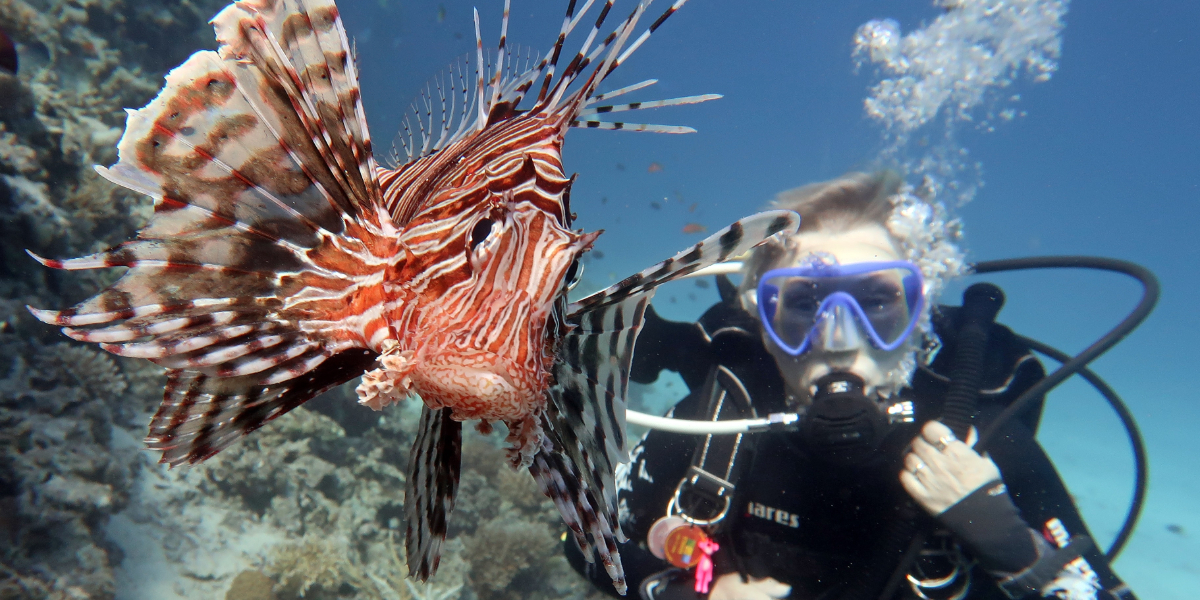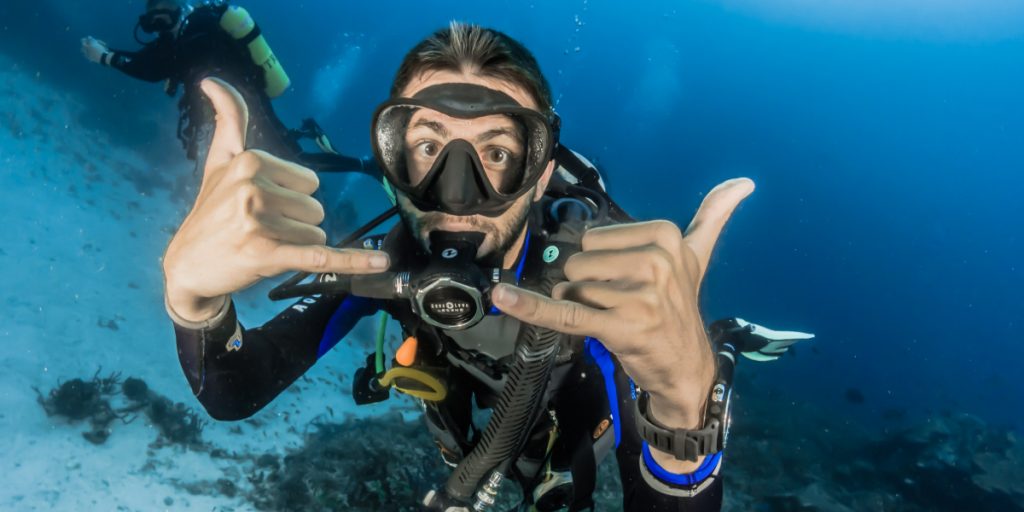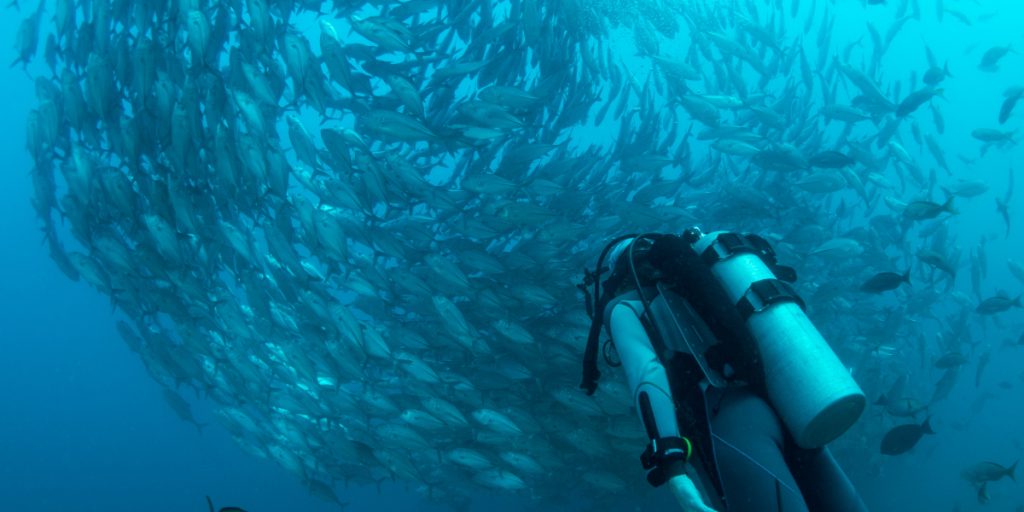With each dive, you get to experience the numerous benefits of scuba diving, some of which you may not even be aware of. Aside from all the natural wonders you get to see with your own eyes, there are other things that should get you excited about your next diving trip. Here are the ways scuba diving helps you physically, psychologically, emotionally, and socially.
1. Relieves Stress
Diving creates a natural feeling of calm. Whether it’s because of the tranquility, the deep and slow breathing, or the sensation of weightlessness, it has been proved to help with relaxation. A 2017 study followed the progress of two groups: one registered for a 1-week recreational scuba diving course and the other for a 1-week multisport course (kayaking, mountain climbing, and hiking). The researchers found that the benefits of scuba diving in reducing stress and improving one’s overall wellbeing were greater than those resulting from the practice of other recreational sports.
2. Promotes Meditation
What some non-divers don’t know is that scuba diving can be used as a form of meditation. When underwater, one must breathe deep and slow to save more air. This allows you to get in a calm state of mind. Scuba diving elicits feelings of freedom, stillness, and without the distractions found at the surface of the water, you become more aware of your surroundings and of your own breathing. And by paying attention to your breathing, you can enter a meditative state that can last throughout the dive. This meditative effect has led some to describe the aquatic world as a therapeutic landscape, as one British researcher notes in her research paper on the meditative capacities of scuba diving.
3. Builds Confidence and Self-Esteem
There’s a great sense of self-confidence and self-esteem in kids and adults when they learn to scuba dive. Confident scuba divers can also carry that confidence to other aspects of their lives, including school, work, other sports, and social interactions. These are among the benefits of scuba diving that lead Divemaster Brad Mirman to found Dive Masters, a non-profit organization dedicated to helping disabled veterans by leveraging on the sense of confidence scuba diving instills in people of all walks of life.
4. Offers Significant Therapeutic Benefits
Scuba diving not only helps with building more confidence but it can also provide therapeutic and rehabilitative benefits to military veterans that have experienced physical and/or psychological injuries as a result of combat. According to a study from the Medical School at the University of Sheffield, scuba diving can reduce insomnia, anxiety, and depression and improve social functioning. These benefits of scuba diving are more often seen in those that suffered psychological injuries, rather than physical ones.
5. Burns Calories
Most divers spend about 30 to 45 minutes underwater. Since a diving session of just 30 minutes has the potential of burning around 400 calories, it is possible to burn over 500 calories on a longer dive. Naturally, doing multiple dives means even more calories are lost in a single day. It all, however, depends on the diver’s weight, fitness level, water temperature, and the intensity of the current and the dive.
But why does scuba diving burn calories? According to PADI, this is mainly due to the body’s process of thermoregulation. When we are exposed to a temperature lower than our core temperature, our body seeks to maintain that optimal temperature. This is why diving in tropical waters typically leads to less calorie burn than diving in temperate waters.
6. Strengthens the Muscles
Some people hit the gym to do some strength training, others simply… hit the water. The water adds resistance to all body parts, so you end up working most of the major muscles in your body to move around. When diving against the current, the effort is greater. The shoulders, core, hip flexors, hamstrings, quads, calves, and ankles are put to work during each diving session. And since you’re surrounded by water that acts as a cushion, there are lower risks of injury due to overworking the muscles.
7. Broadens Your Social Circle
When you’re out diving, you are among like-minded individuals. Making friends among other divers you encounter on your scuba trips is easy, as the diving community is a tight one. After a dive, you can share your experience with other people that are just as excited about scuba as you are. These interactions can turn into long-lasting friendships.
8. Improves the Connection to Nature
Society’s disconnection from nature has many causes but urbanization is perhaps the most pervasive. The reconnection with nature has many benefits, including those related to personal development, mental health, and spirituality, among others. Those that have an affinity for aquatic species and environments are filled with excitement and awe when they get to explore the marine life surrounding them. Being aware of the fragility of the underwater habitats helps one understand the need for marine conservation.
9. Gives a New Reason to Travel
After getting your first taste of diving, you will want to experience more of it. And while you may not need a reason to travel, you’ll soon be adding amazing diving destinations to your bucket list. Most divers travel to the warmer parts of the world to dip their fins in tropical waters filled with colorful reefs and marine animals. And each diving trip brings other benefits of scuba diving such as getting a break from work, soaking in the sun and getting your much-needed vitamin D, and experiencing all kinds of new adventures. Traveling is a great way to recharge your batteries and works wonders on your mind and soul.
Have you noticed any changes in the way you feel since you started scuba diving? Let us know about the benefits you experience in the comments below.



judith Hani says:
Liberating